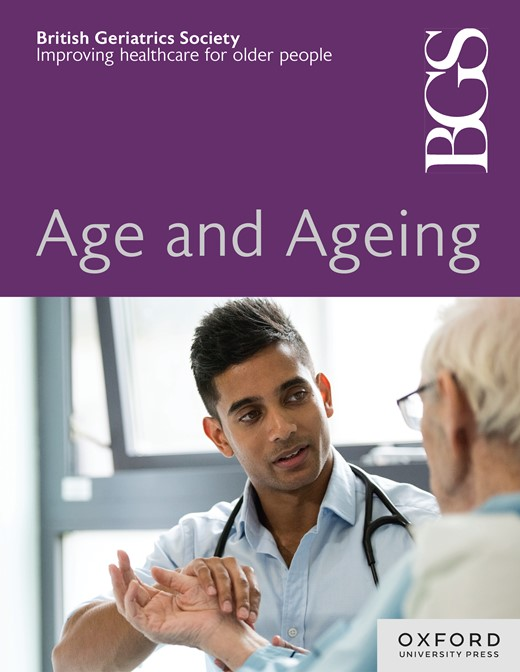认知脆弱老年人的处方解除:STOPPCog标准的制定和验证
IF 6
2区 医学
Q1 GERIATRICS & GERONTOLOGY
引用次数: 0
摘要
目的验证STOPPCog这一认知易感老年人潜在不适当用药的明确标准。设计一个专家小组的德尔菲共识调查,包括学术老年病学家、老年精神病学家、全科医生和临床药剂师。设置爱尔兰。9个小组成员。方法根据临床经验和文献评价,初步建立STOPPCog标准。根据药物/药物类别组织标准。使用德尔菲共识方法,小组成员按照5分李克特量表对他们对每个标准的同意程度进行排名,并提供书面反馈。中位数为1或2(强烈同意/同意)且第25百分位值≤2的标准被纳入最终列表。结果所有小组成员完成了两轮德尔菲共识验证。最初提出了25项标准,其中20项被接受。一项标准被拒绝(多种维生素补充剂),四项标准被重新表述(其中两项被合并为一项标准,以更清晰)。最终的清单包括23项标准,分为6个亚组,即(i)每天服用具有抗胆碱能特性的药物;(二)每日服用的具有镇静作用的药物;(iii)可能加重α -突触核蛋白病理患者精神病症状的药物;(四)治疗慢性疼痛的药物;(五)每日服用的未被证实对痴呆症有效的药物;(vi)对晚期痴呆无疗效证明的药物,即临床痴呆评分为3.0,姑息治疗可能合适的药物。结论STOPPCog包含23项与认知易感老年人潜在不适宜用药相关的标准。STOPPCog可以帮助医生在这一患者群体中开处方。本文章由计算机程序翻译,如有差异,请以英文原文为准。
Deprescribing in cognitively vulnerable older people: development and validation of STOPPCog criteria
Objective To validate STOPPCog, a list of explicit criteria for potentially inappropriate medication use in cognitively vulnerable older adults. Design A Delphi consensus survey of an expert panel comprising academic geriatricians, old age psychiatrists, general practitioners, and clinical pharmacists. Setting Ireland. Subjects Nine panellists. Methods STOPPCog criteria were initially created by the authors based on clinical experience and literature appraisal. Criteria were organised according to drug/drug class. Using Delphi consensus methodology, panellists ranked their agreement with each criterion on a 5-point Likert scale and provided written feedback. Criteria with a median value of 1 or 2 (strongly agree/agree) and a 25th centile value of ≤2 were included in the final list. Results All panellists completed two Delphi consensus validation rounds. Twenty-five criteria were proposed initially, twenty were accepted. One criterion was rejected (multi-vitamin supplements), and four criteria were rephrased (two of these were combined to one criterion for greater clarity). The final list comprised 23 criteria that are arranged in six subgroups i.e. (i) drugs with anticholinergic properties taken daily; (ii) drugs with sedative properties taken daily; (iii) drugs that may exacerbate psychotic symptoms in patients with alpha-synuclein pathology; (iv) drugs used for chronic pain; (v) drugs without proven efficacy for dementia taken daily; (vi) drugs that are of no proven benefit in advanced stage dementia i.e. clinical dementia rating of 3.0 where palliation may be appropriate. Conclusion STOPPCog comprises 23 criteria relating to medications that are potentially inappropriate in cognitively vulnerable older adults. STOPPCog may assist physicians in deprescribing medications in this patient population.
求助全文
通过发布文献求助,成功后即可免费获取论文全文。
去求助
来源期刊

Age and ageing
医学-老年医学
CiteScore
9.20
自引率
6.00%
发文量
796
审稿时长
4-8 weeks
期刊介绍:
Age and Ageing is an international journal publishing refereed original articles and commissioned reviews on geriatric medicine and gerontology. Its range includes research on ageing and clinical, epidemiological, and psychological aspects of later life.
 求助内容:
求助内容: 应助结果提醒方式:
应助结果提醒方式:


